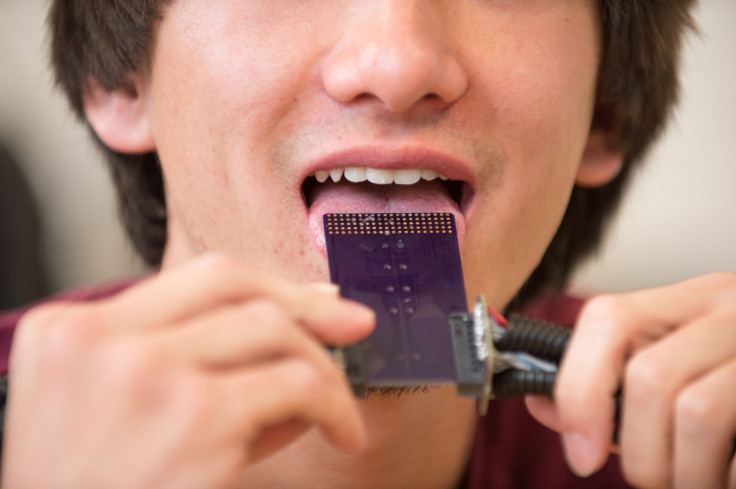New device teaches deaf people to hear sounds with their tongues

A new type of hearing device has been developed that could one day allow deaf people to teach their tongues to "hear sounds", replacing the need for invasive and expensive cochlear implants.
Engineers and neuroscientists from Colorado State University (CSU) built a prototype of the retainer device that receives signals via bluetooth from an external microphone.
"It's much simpler than undergoing surgery and we think it will be a lot less expensive than cochlear implants," said John Williams, project leader and professor of mechanical engineering at Colorado State University. "What we are tying to do is another form of sensory substitution."
By placing their tongue against the retainer, users are able to feel electric impulses emitted and reinterpret the patterns as sound using the thousands of nerves present on the tongue.
The researchers have estimated that training the brain to accurately learn and interpret specific sound patterns can take between three weeks and three months.
Leslie Stone-Roy, a neuroscientist involved in the CSU project, said that the brain learns to reinterpret sound in this way in a similar way to how it "reads" words using Braille.
"We have a remarkable amount of plasticity in our brain even as adults," Stone-Roy said. "We now know that it is able to make changes and adapt to changes in incoming information, especially stimuli that are of importance to the individual."
Following a year of research and prototype development the CSU team has now filed a patent for the technology and launched a startup to help push the project forwards.
The focus now is to better understand where to place the electrodes on the retainer in order to send out the best signal.
"Basically, we are mapping the nerves on the tongue," Stone-Roy said. "There isn't a lot of information out there about the nerves on the tongue and their ability to sense electrical impulses."
© Copyright IBTimes 2025. All rights reserved.






















